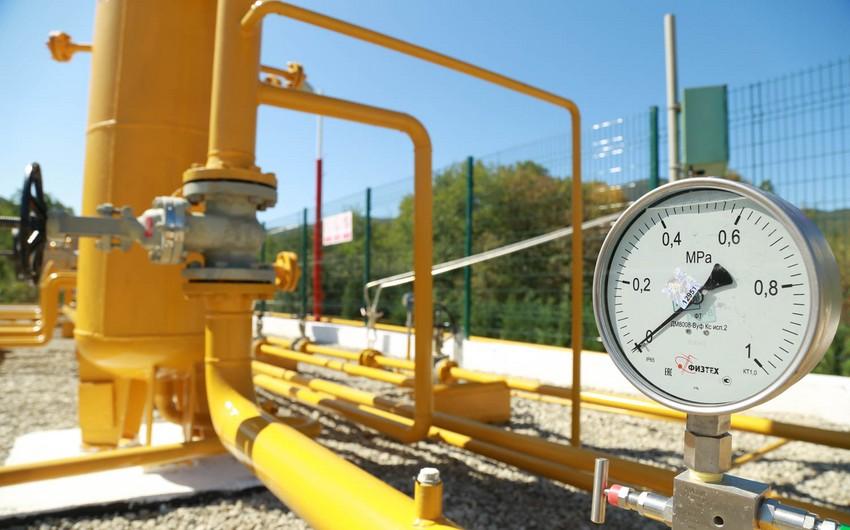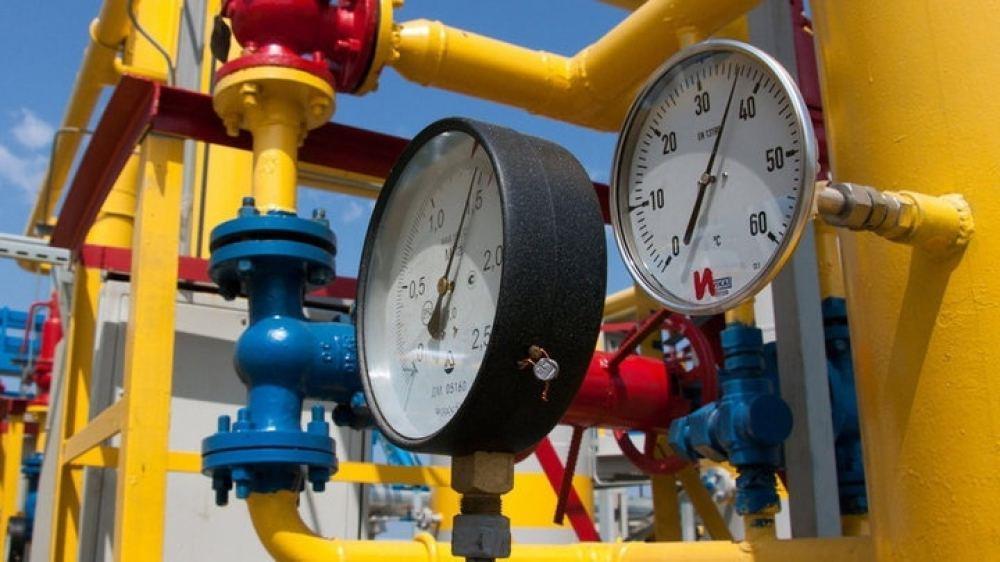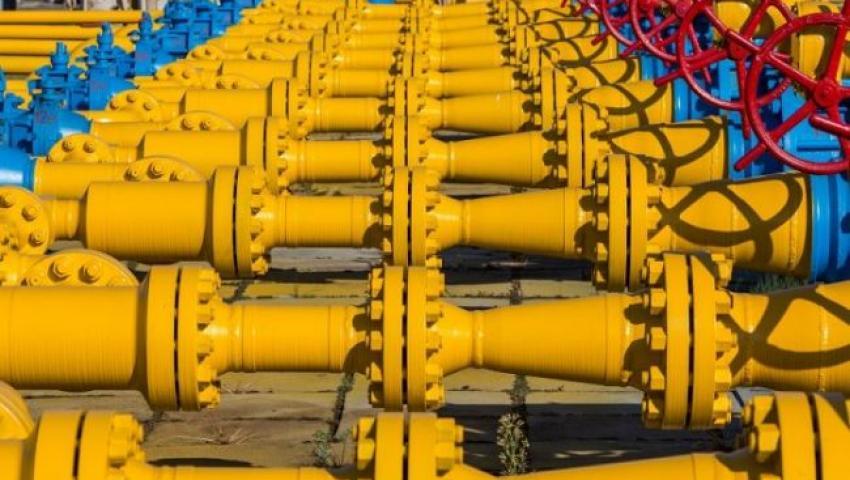Interconnector IGB expands Azerbaijani gas supplies in Europe Review by Caliber.Az
The EU has repeatedly highlighted Azerbaijan’s important role in ensuring the energy security of the "Old World" (Africa, Europe, and Asia). Special attention is paid to the supply of gas through the Southern Gas Corridor (SGC). This cooperation is acquiring priority, and strategic importance for the EU today amid the global fuel crisis and the war in Ukraine. The commissioning of the Gas Interconnector Greece-Bulgaria (IGB) was the next step, contributing to the expansion of the Azerbaijani gas supplies. Azerbaijani Energy Minister Parviz Shahbazov has recently taken part in the IGB opening ceremony in the Greek Komotini city.
The EU adopted the final document in late March 2022 within its summit dedicated to security issues, the topic of which was devoted to energy, continuing the line outlined in the Versailles Declaration (as of March 11, 2022) to get rid of dependence on Russian energy resources as soon as possible.
Moreover, having finally changed the EU energy supply paradigm, from now on Brussels is unequivocally set to be as active as possible in connecting numerous neighbouring countries in the post-Soviet area, African, Middle Eastern countries, and other partners in solving energy security problems, implementing joint initiatives in this sphere.
"The EU intends to get rid of dependence on Russian energy resources earlier than on fossil fuels in general," President of the European Council Charles Michel said. He noted that the EU energy security program envisages accelerating the necessary investments in infrastructure, for example, in the development of pipelines, their connection to interconnectors, the creation of liquefied gas terminals, etc.

This process is being intensified in southern Europe, in which the work on the construction of interconnectors and other gas transport infrastructure facilitating the supply of Azerbaijani gas through the SGC system has been accelerated in several Balkan countries.
In particular, the commissioning ceremony of the Interconnector Greece-Bulgaria (IGB) was held in Komotini on July 8, 2022 in the presence of prime ministers and heads of the corresponding ministries of several regional countries, including Azerbaijani Minister of Energy Parviz Shahbazov.
The Azerbaijani gas has been supplied via the Trans-Adriatic Pipeline (TAP) to the Balkan region since December 2020. Besides Italy and Greece, gas was also supplied to Bulgaria, however, in much smaller volumes than it was initially expected. Instead of a quota of one billion cubic metres per year, Bulgarian consumers obtained only 250-300 million cubic metres. The gas volumes were not fully supplied because there was not an interconnector that would directly connect the gas transport routes of Greece and Bulgaria.
Alas, this project worth €220 million ($224 million), which was launched in 2019, was partially implemented successfully, due to the impact of the COVID-19 crisis.
The work on the project greatly accelerated in 2021, maintaining a high pace amid Ukrainian events.
Bulgarian ex-President Rosen Plevneliev has recently noted that after the cessation of gas supplies to Bulgaria by the Russian Gazprom company, about seven million people faced energy instability.
Bulgaria was able to overcome a number of financial and technical problems and completed the construction of the IGB interconnector and other elements of the gas infrastructure with Greece, Türkiye, and Romania through EU support. After the recent IGB commissioning ceremony, Bulgaria will be able to launch a full-fledged commercial operation of the 182 km interconnector by the end of this month (taking into account the time required to fill the pipeline with gas).
According to the contract signed by the Bulgargaz EAD state company with the Shah Deniz consortium, one billion cubic metres of gas from the Azerbaijani offshore Shah Deniz Stage 2 field will be supplied to Bulgaria annually, and these volumes will be able to meet Bulgaria's demand for gas (from a quarter to a third).
Moreover, over time, the volumes of Azerbaijani gas supplies can be increased as the throughput capacity of the gas pipeline is three billion cubic metres with the possibility of bringing supplies up to five billion cubic metres. IGB not only will ensure reliable gas transportation, which makes it a key element of Bulgaria's energy security, but over time it can become an element in the diversification of gas sources for neighbouring countries.
“After the commissioning of the IGB interconnector, Romania will also be able to supply natural gas to Moldova and Ukraine. In fact, the new interconnector will connect the network passing through Anatolia and the Adriatic, as well as will be connected to the BRUA pipeline, thus ensuring gas supplies to Bulgaria and Romania,” Romanian Prime Minister Nicolae Ciuca has recently said at a press conference with his Greek counterpart Kyriakos Mitsotakis.
In turn, while speaking at the ceremony, Shahbazov noted that Azerbaijan is a stable strategic source of diversified gas supplies to Italy and other countries of southern Europe.
“Some 13.5 billion cubic metres of gas were supplied to Europe for more than a year. Some 1.4 billion cubic metres accounted for Greece while 440 million cubic metres – for Bulgaria. Some 160 million cubic metres of gas were exported to Bulgaria from January through June 2022 while by the end of the year it is planned to increase the volume up to 600 million cubic metres. This country has been receiving 2.6 million cubic metres per day since July 1, 2022, which means an increase in supplies by 1.7 million cubic metres,” the Azerbaijani minister of energy noted.

The Azerbaijani minister of energy said that the opening of a new IGB branch, as well as the possibility of supplying Azerbaijani gas to Europe, when the demand for gas is growing rapidly, demonstrates solidarity, mutual trust, and support between our countries.
The minister also outlined the role of the IGB interconnector as a strategically important infrastructure component necessary for the implementation of new projects aimed at expanding the Southern Gas Corridor and diversifying the energy supply throughout Southeastern Europe.
In particular, the TAP consortium, the Albanian Ministry of Infrastructure and Energy, and the Albanian Albgaz gas company signed a cooperation agreement in July 2021.
According to this agreement, TAP will design, purchase and build a gas exit point for Albania in Fier city. Albania's requests for the purchase of Azerbaijani gas cover 2023-2031.
The cooperation between Baku and Belgrade is also promising in the field of gas. The Nis-Dimitrovgrad interconnector between Serbia and Bulgaria (Bulgaria-Serbia Interconnector Gas Pipeline, IBS), expected to be commissioned in 2023, will reduce dependence on one gas supplier (Gazprom) due to an increase in supplies of liquefied natural gas from Greece and pipeline gas via SGC from Azerbaijan.
This work is planned to be accelerated, and the IBS construction projects are planned to be completed in the first half of next year.
In turn, Hungary also expects to purchase gas from Azerbaijan in late 2023. Initially, the volumes may reach two hundred million cubic metres, and in general, the possibility of increasing supplies to two billion cubic metres per year is being discussed.
Budapest is already holding the corresponding negotiations with the State Oil Company of Azerbaijan (SOCAR), and these agreements look encouraging. As for the infrastructure for connecting to TAP, a Serbian-Hungarian interconnector with a capacity of 8.5 billion cubic metres per year was built at the end of last year. After the completion of the IBS construction, approximately by late 2023, there will be a technical possibility to export Azerbaijani gas to Hungary.

Thus, Azerbaijani gas is in demand in the Italian, Greek, and Bulgarian markets. Serbia, Albania, and Hungary will also get gas in the future. Gas may be supplied to the Romanian, Moldovan, and even Ukrainian markets in the long term prospect.
All this contributes to a stable increase in gas production in local fields. The resource base is very extensive. Besides the two phases of the Shah Deniz gas condensate field, the reserves of the Absheron, Umid-Babek, Karabakh, Shafag-Asiman fields, the capacity of which, according to SOCAR, exceeds one trillion cubic metres of gas, can be also used. This gives confidence in long-term and sustainable cooperation in the energy sector with the EU and Türkiye.








